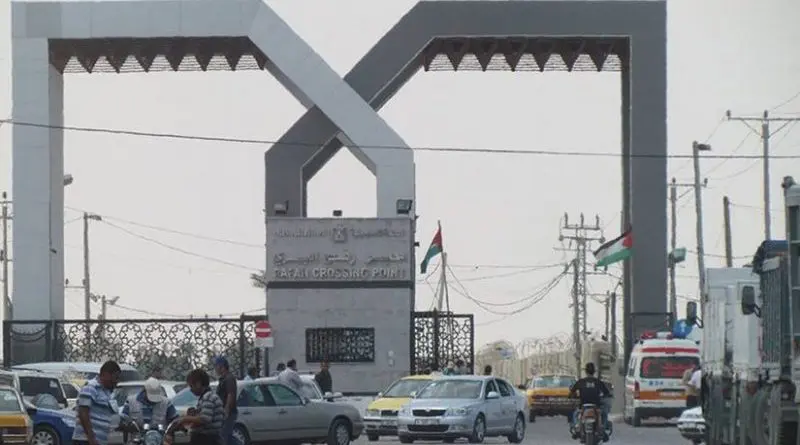The Italian Left And Palestine: It’s Now Or Never – OpEd
By Romana Rubeo*
Trying to retrace Italy’s position on Palestine means, in some ways, following the same painful history that has marked the emptying of the Italian left, the abandonment of the values which characterized it and made it great, the missing of both our goals and benchmarks.
The same subservience that characterizes the action of the left on all fields also is also reflected in its foreign policies: nobody takes a clear stand and everything seems to be surrounded by a certain degree of ideological confusion as to the cornerstones that should guide our choices.
For many years, the Italian left has been an important point of reference for the Palestinian liberation movement, but even in this specific field we weren’t able to come through neo-liberalism and Islamophobic rhetoric following 9/11 unscathed. Pressed on all fronts, we have given way to the prevailing narrative of the enemy, adopting its conceptual categories.
During Israel’s military operations in the Gaza Strip, part of the left tried to speak out, but even in this case, it was not done in reference to a solid it theoretical foundation, necessary in order to avoid the empty rhetoric of a purely humanitarian interest, focusing solely on brutality and on inaccurate death tolls, and not bringing attention to the very root of the problems.
The Palestinian resistance movement is a broader liberation struggle against imperialism, colonialism and neo-colonialism, and for this reason it is still essential in order to decipher the Middle East Region; it is fundamental for a left-wing a party or a movement to consider this perspective.
In recent months, there has been a fervent debate about the future of the left in Italy, and about the possibility of creating a new entity, able to represent a viable alternative to the complete dismantling of the values that have shaped our history and our noble tradition.
As an activist, I am convinced that this new movement cannot remain silent in the face of what’s happening in Palestine and, more generally, in the Middle East. Again, the gap that separates us from Matteo Renzi’s policies seems unbridgeable: the statements of our Premier at the Knesset were incisive and clear; they showed a well-defined path, the same Italy has already undertaken during the last decades.
He moved the issue of the right to resistance from the side of the powerful (the State of Israel) and declared the Italian willingness to stand by Israel’s side in this challenge; after that, the reference to the “two-State solution” reiterated with Palestinian Authority President Mahmoud Abbas the next day in Bethlehem sounded even more empty and purely rhetorical. And now history is repeating itself, with Renzi’s inaccurate and nonsensical comments on UNESCO resolution.
Building a left-wing movement which is not subservient towards the dominant perspective on history is a true challenge: and I believe that the discussion should be frank and open, in all the fields and in particular as regards the Palestinian question.
In my opinion, the left-wing movement to be built should get rid of some taboos and reconsider its choices in the framework of a clear theoretical apparatus, in order to develop an independent way of thinking and trace a new direction.
For example, we cannot consider the BDS as a taboo: Matteo Renzi branded it as “sterile and stupid”; at the very best, it is presented as a measure that hinders the building of bridges for freedom and co-existence, as stated by the popular writer JK Rowling. Such a stance clearly does not take into account the context of apartheid in which the Palestinian people live and also, it denies the right to a form of non-violent resistance, which was internationally supported in South Africa.
Another taboo we should get rid of is the uncritical condemnation to all forms of violence, which often leads to a short-sighted reading of the facts, without the filter of the lens of a people’s right to resistance. Italy, as we know it, was born out of Resistance; we should be proud of our history and express full solidarity with all people struggling to free themselves from the grip of occupation. Even in condemning radicalism and extremism, we cannot neglect to consider the internal and external factors that ultimately determine them, or we will succumb to simplistic and Manichaean judgments.
Moreover, we should start to doubt the formula that we repeated like a mantra every time we were questioned on this issue: “two states for two peoples”. A mantra that, we must be honest, served the objective of having a clear conscience; however, confidence in the negotiation as the sole criterion of conflict resolution is dead and gone after Oslo. We should renew our conceptual categories in the light of history, if we don’t want to fall into a purely rhetorical vortex that clears us from all responsibilities.
“It’s now or never”; that’s what I think every time I look at this desolating situation, where our traditional values are relentlessly under attack; the greatest achievements of the 20th centuries are described as outdated burdens hindering the myth of progress, and blamed for a crisis that instead is the result of the internal contradictions of capitalism; the social fabric is so disrupted that every individual is completely shut down, and keeps blaming the victims instead of the perpetrators.
“It’s now or never” we have the chance to build a left that cannot remain silent, a left that is able to take a clear stance in the conflict between the powerful and the powerless.
*Romana Rubeo is a freelance translator based in Italy. She holds a Master’s degree in Foreign Languages and Literature and she is specialized in Audiovisual and Journalism Translation. An avid reader, her interests include music, politics, and geopolitics. She contributed this article to PalestineChronicle.com.

